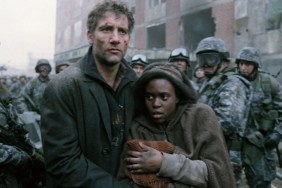Cast:
Adam Sandler as Don Truby
Rosemarie DeWitt as Rachel Truby
Jennifer Garner as Patricia Beltmeyer
Judy Greer as Donna Clint
Dean Norris as Kent Mooney
Ansel Elgort as Tim Mooney
Kaitlyn Dever as Brandy Beltmeyer
Elena Kampouris as Allison Doss
Travis Tope as Chris Truby
Olivia Crocicchia as Hannah Clint
Will Peltz as Brandon Lender
Shane Lynch as Angelique Ice
Dennis Haysbert as SecretLuvur
Tina Parker as Allison’s Mom
J.K. Simmons as Allison’s father
Emma Thompson as Narrator
Timothée Chalamet as Danny Vance
Kristin McKenzie as Olivia Lee
Katherine C. Hughes as Brooke Benton
Directed by Jason Reitman
Story:
In a small community, the use of technology and how it affects their relationships is explored in this adaptation of Chad Kultgen’s novel. Don and Rachel Truby (Adam Sandler, Rosemarie DeWitt) have reached an impasse in their marriage while their son Chris is dealing with his own obsessions with internet porn.
The high school’s star football player Tim Mooney (Ansel Elgert) has turned his back on sports to play his favorite online roleplaying game, but he’s also connecting with Brandy Beltmeyer (Kaitlyn Dever), a classmate whose mother (Jennifer Garner) is moderating her internet use like a Communist dictator.
Meanwhile, the school’s popular cheerleader Hannah Clint (Olivia Crocicchia) wants nothing more than to be a famous celebrity, a burning desire that’s blindly supported by her mother (Judy Greer).
Analysis:
For better or worse, Jason Reitman has become one of those directors where it’s impossible to watch one of his movies without making comparisons to his previous works. That probably should be taken as a compliment, because this is something normally only done for filmmakers with a much vaster filmography, although it must make it harder for the second-gen filmmaker with every new movie, because there will always going be the critics who pull out that old chestnut “It’s not as good as your first record.” Reitman deserves far more credit than that, because for only his sixth film, the director has created something that’s as much “of the times” as “Up in the Air” or “Juno” or “Young Adult” in that it only really could be made at this very point in time and it captures the zeitgeist so perfectly.
After an opening credits sequence narrated by Emma Thompson explaining the Voyager satellite, seemingly a non-sequitur but in fact a framing device that does eventually tie things together, we’re introduced to the primary characters, all of whom live in the same suburban area and are dealing with how technology and the internet is changing how they relate to one another.
In some ways, you could easily consider this to be Reitman’s attempt at a film like Alejandro Iñarritu’s “Babel” or P.T. Anderson’s “Magnolia,” interlinked stories and characters circling each other similar to that satellite in the opening credits. Rather than a movie specifically about the ills of the internet, the realities of “stranger danger” and such, Reitman’s effort succeeds where the earlier “Disconnect” failed maybe since there is a wider variety of relatable characters each with their own dreams and ambitions. Maybe that should be credited to the source material, but working with an incredible script he co-wrote with Erin Cressida Wilson, Reitman ends up with a resulting film that’s rich and layered.
At first, the film focuses its time on the teenage characters trying to get through the travails of high school life with the added pressures of sexting, selfies, etc. If John Hughes were to make a movie today, it probably would look something like this portion of the movie, and Reitman gets really solid performances out of his young cast, particularly Ansel Elgort as MMPRM-obsessed Tim Mooney and his girlfriend Brandy (Kaitlyn Dever), who has to deal with the opposite of the other teens with her mother obsessed with keeping her daughter “safe” from the rest of the world.
Jennifer Garner’s character is one of the scarier ones in the movie?partially because it’s so opposite the usual roles she plays, but also because you know there are just as many overly precautious parents out there as there are neglectful ones. Judy Greer is similarly interesting as the “stage mother” trying to recapture her own failed efforts at an acting career through her overexposed daughter and making many questionable decisions while doing so.
Just as we’re tiring of the teens, the narrative switches to the adults dealing with their own issues as Sandler and DeWitt’s married couple start to explore sexual encounters with other people and Greer finds a rare off-line connection with Tim Mooney’s father, a terrific role for “Breaking Bad’s” Dean Norris. This shift works so well that it’s almost a letdown when we go back to the kids, who are dealing with more commonplace issues of image.
Eventually, the separate stories involving parents and kids collide with a number of realizations, some of the stories being resolved in a more satisfying way than others. Either way, Reitman should be given a huge amount of credit for making such disparate narratives flow so smoothly from one to another. At a time when filmmakers have been forced to find creative ways of visually showing the use of technology, Reitman finds new ways of doing so, including an establishing shot of the high school in which every single student is either texting or browsing on their phones.
Even the idea of having Thompson narrate the film works, because having such a distinguished voice being so matter of fact while graphically describing Sandler’s porn-browsing activities offers immediate amusement, even if it’s a narrative device that mysteriously vanishes for much of the film.
Additionally, “Men, Women & Children” sports one of Reitman’s best scores to date, working with someone named “Bibio” and go-to music supervisor Randall Poster, who provides a mournful version of Donna Summer’s disco classic “I Feel Love” and Hall & Oates’ “She’s Gone,” both used to great effect in two key sequences.
For some, the film’s message may be a little on-point, but it’s not that the internet is bad. It’s more that those who spend their lives staring at their smartphones or living their lives via a computer screen (in other words, all of us) may need to look at the bigger picture of how little our entitled lives really matter when all is said and done.
The Bottom Line:
Another fine step forward for Jason Reitman as a filmmaker, “Men, Women & Children” may rub some people the wrong way, although it’s likely those are the ones who should be paying attention to the film’s somewhat veiled underlying message.
Having premiered at the Toronto International Film Festival, Men, Women & Children opens in New York and Los Angeles on Wednesday, October 1, with expansion plans throughout October.










